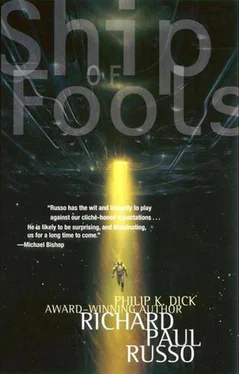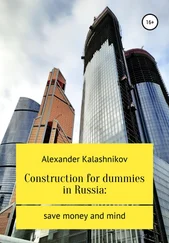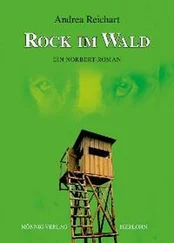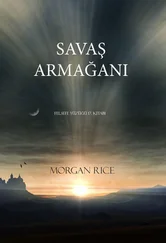She was chanting what seemed to be a mix of ersatz Latin and Standard. I knelt beside her.
“Can I help you?”
She stopped her chanting and closed her eyes. “No one can help me,” she said, quite distinctly. “No one can help any of us. We’re drowning in the whirlpool of the universe.” She turned her face back to the wall and resumed her murmured chant.
I tried to check in with Nikos, but he was unavailable. There was no emergency, or at least no new one, so I didn’t pursue it. Cardenas was also unreachable. When I tried to contact Pär, his com system answered, but there was no video.
“Pär, are you there? You all right?”
No answer. I broke the connection and headed for his rooms. On my way to the lower levels I passed through corridors so empty and quiet it seemed the Argonos was deserted, and others so crowded and noisy and panicky, I was afraid a riot was about to break out. Nothing was normal.
I found Pär reeling drunk, clutching a whiskey bottle. He could hardly keep his eyes open, and couldn’t walk. He half rolled, half crawled across the floor after he let me in, then pulled himself up onto a chair.
“Tried calling you,” he said. Surprisingly there was no slur to his words, but his voice was faint and hoarse. “No response. Calls denied. Couldn’t remember override.”
“I was sleeping.”
He looked at me with one half-open eye. “How can you sleep?”
“Exhaustion. And timed sleep tabs.”
“Drank too much,” he muttered, the eye closing. His head rolled back so that he would have been staring at the ceiling if his eyes had been open. “Hate being this drunk.”
I went into the bathroom and at the meds console punched up a mega-vites patch and a three-hour sleep patch.
“Your turn to sleep now,” I told him when I came back.
I took the bottle out of his hand (it was empty, anyway), pressed the patches to his neck, and helped him to the bed. He didn’t resist. Eyes still closed, he waved a hand at me, but said nothing.
“I’ll be back later, Pär.” I turned the lights down and left.
THEcathedral was nearly full; a sense of fear and despair permeated the atmosphere. The bishop was speaking, but I didn’t pay much attention—something about the arbitrary nature of God’s mercy and the wages of sin. If anything, he was making those in the cathedral even more frightened.
I sat in the last pew in one of the side sections. There was a crackle in the nearest speaker so that the bishop seemed to spit and sputter as he spoke; then it cleared up, and his voice came through loud and resonant.
Nearly all the people around me appeared to be downsiders. Entire families huddled together. Younger children squirmed in their seats, and infants slept or fussed in their parents’ arms. A few of the older children listened intently, their faces marked with confusion and concern, trying to understand what was happening to them. Most of the adults, however, seemed resigned. How many here were nonbelievers searching desperately for a new faith? How many were believers praying for a miracle? How many had simply given up all hope?
The bishop finished his speech or sermon or rant or whatever it was, and turned the pulpit over to Father Veronica. She stood for a minute or two in silence, looking out over the congregation. When she began to speak, her voice was steady and calm.
“We are all frightened,” she began, “afraid of what may happen to us. It is nothing to be ashamed of. It is normal. It is human .
“There is a strange and mysterious ship out there, manned by strange and mysterious beings we have never seen. We are trying to escape from them, and it is likely they mean us harm. As much as anything, though, our fear comes from uncertainty: we do not know what will happen to us, or when. We do not know if we will be able to defend ourselves. We do not know.”
She paused, her gaze again sweeping across everyone in the cathedral.
“I won’t tell you not to be afraid,” she resumed. “But I want to remind you of what we do know. Of what we know about ourselves, and what we know about what will happen to us.
“We are the children of God. It is very possible that those alien beings are also children of God. Perhaps they have lost their way. Perhaps they do not understand us, perhaps there is something critical they do not understand about themselves. Perhaps they do not understand what God wants from them. After all, sometimes we don’t understand. Sometimes we lose our way.
“The most important thing to remember now is that no matter what happens to us, or when, in the end we will be with Him. Our souls will go on, in life eternal. Our suffering will end, our pain will end, and we will dwell forever with peace and joy and love in His Kingdom.”
I sensed a change gradually manifesting itself in the people around me as she spoke. The fear eased—not completely, but perceptibly, little by little as a sense of peace gradually suffused the cathedral.
Father Veronica continued to speak. I don’t remember much of what she said after that, but I will never forget the effect she had on those who were in the cathedral. She accomplished what the bishop had utterly failed at—she eased their fears, she calmed and comforted them, and she renewed their faith, both in God and in themselves.
I felt proud for her, and admired her more than ever. But I also felt increasingly uncomfortable and guilty. I still did not believe, although at that moment I wished I could, and I felt I did not belong in that place of worship with everyone else.
I rose to my feet and walked out of the cathedral.
SEVERALhours later I returned to Pär’s quarters. He was sober and freshly showered, his hair still damp, and he was drinking coffee.
“I’m ashamed,” he said.
“There’s nothing to be ashamed of,” I told him.
He snorted. “When I heard, I thought to myself, ‘What’s the point of being sober? So I started drinking, and couldn’t stop.” He poured me a cup of coffee, refilled his own. “I…” He sighed and gave me something like a smile. “I thought I was better than that.”
“You’re as good as any of us, Pär. And better than most. I slept, you drank, and hundreds of people have gone to the cathedral to find comfort in God.”
“You’ve been there?”
“Just now. The bishop was useless, making people even more terrified. But Father Veronica managed to give them what they needed—comfort. Eased their fears. Gave them some peace.”
Pär nodded thoughtfully. “I wish I could find comfort in faith,” he said. “I used to think that religion was for the ignorant, but I’ve seen some intelligent people who have a sincere belief in God. Father Veronica’s at the top of that list.”
“So why is it she can’t convince either one of us?” I asked.
He shook his head. “You and I will never believe, Bartolomeo.”
“No,” I agreed. “We won’t.”
I checked the wall clock. “Sorry, Pär, but I have to go. Nikos has called for a council session.”
“Ah,” he said. “Brilliant minds working together to solve all problems. I’m sure you’ll figure out something to save our asses.”
“Yeah. I’m sure we will.”
Pär just shook his head again, and I left.
EVERYONEwas there, and everyone was exhausted. Most also appeared to have already given up. Bishop Soldano stared at me with a barely controlled malice that made me distinctly uncomfortable.
“Everyone rested?” Nikos asked. “Good,” he said without waiting for answers. “I’m open to ideas.”
No one knew how to respond. Nikos had been so abrupt, and at the same time almost nonchalant.
Читать дальше












